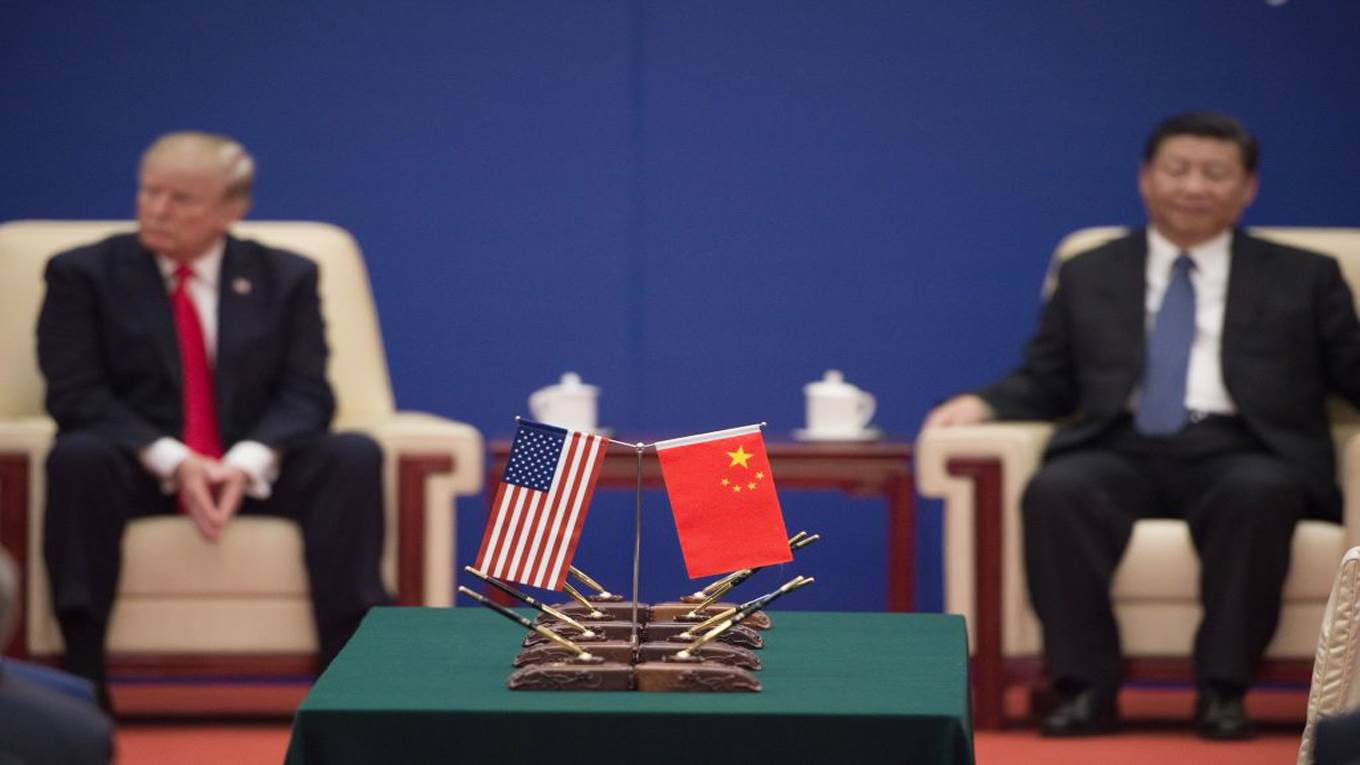KAUSHIK BASU
 Our exclusively promise of overcoming the environmental challenges nosotros seem upward is to utilization every tool nosotros can. That agency collecting detailed information on issues similar air quality, together with using what nosotros larn to blueprint the correct rules together with incentives.
Our exclusively promise of overcoming the environmental challenges nosotros seem upward is to utilization every tool nosotros can. That agency collecting detailed information on issues similar air quality, together with using what nosotros larn to blueprint the correct rules together with incentives. MEXICO CITY – The Great Chinese Famine, which peaked inwards 1960, was the world’s largest on record. But the effects of that famine – including its terms of to a greater extent than than thirty 1000000 deaths – were non quantified until long after the fact. That was partly because authorities officials were afraid to convey whatever information they had to the attending of Mao Zedong, whose Great Leap Forward policy had played a role inwards causing the famine. But it was also because together with then few people genuinely understood the scale of the problem, owing to a lack of data. Is air pollution today’s slap-up famine?
In recent decades, information collection has improved dramatically inwards many areas. The economy, for example, is tracked together with monitored to an unprecedented extent, allowing policymakers together with the populace alike to recognize real chop-chop when economical increment is slowing down, chore creation is below potential, or need is flagging. Even if that information does non enable economists to predict hereafter slowdowns amongst much accuracy, it does facilitate timely responses. This is 1 argue why at that spot are fewer major economical crises nowadays, together with why soil GDP, despite a recent slowdown, is growing much faster than it did a century ago.
Yet, when it comes to pollution, together with specifically air quality, non close plenty attending has been paid to information collection together with analysis, particularly inwards emerging economies similar Republic of Republic of India together with China, where air-quality deterioration is obvious together with severe. Though wide figures are existence collected, at that spot are non plenty granular information to render a clear motion-picture demo of the specific factors affecting air quality.
At the international level, the Asian Development Bank hopes that its Inclusive Green Growth Index (IGGI) volition assist unopen this gap. The IGGI aims to assess countries’ surgical procedure non exclusively according to economical together with social parameters, but also on the soil of their environmental record. More detailed than similar efforts made inwards the past, the IGGI uses 28 indicators, including clean-water access together with air-pollution levels.
The ADB’s information demo that, inwards Asia, the highest performers on environmental sustainability include Singapore, Bhutan, Sri Lanka, together with Laos. At the bottom of the listing prevarication Turkmenistan, Uzbekistan, together with Mongolia. While factors similar natural resources together with geography undoubtedly contribute to countries’ performance, such comparisons tin endure useful to spur purposeful action, amongst specific information points offering insights into where each soil could stand upward to improve.
At the national level, China’s authorities has been doing impressive function to better its pollution information inwards guild to guide its environmental strategy, which includes, amid other things, the world’s largest carbon-pricing system, roofing 7 provinces. For example, high-frequency information collected through Continuous Emissions Monitoring Systems render crucial information regarding the sources of air pollutants, enabling the authorities to create effective incentives for firms to curb emissions.
Moreover, since the terminate of 2013, China’s authorities has required 14,410 coal companies to upload hourly information on emissions from their production units onto a publicly available online platform. Such information informed novel rules together with regulations focused on reducing emissions. According to a recent paper past times Valerie Karplus, Shuang Zhang, together with Douglas Almond, the novel rules contributed to a 13.9% drib inwards sulfur-dioxide concentration from coal-fired might plants. It should endure noted that this approach works exclusively if, every bit is the instance inwards China, companies seem upward heavy penalties non only for polluting, but also for falsifying data.
This is non to tell that information lone should create upward one's heed policy. Economics is a social science, together with aggregate outcomes often reverberate the effects of idiosyncratic behavior, attitudes, together with events. The same goes for environmental policymaking: interventions tin neglect for reasons that receive got piddling to practice amongst design.
That is what happened inwards India, when novel cooking stoves were introduced inwards guild to cutting indoor pollution, a major movement of wellness problems amid the country’s poor. The projection should receive got worked: laboratory tests confirmed that the stoves produced less pollution. But a carefully controlled randomized intervention designed past times Rema Hanna, Esther Duflo, together with Michael Greenstone showed otherwise.
Initially smoke inhalation did decline. But that trial chop-chop disappeared, because households failed to hold the stoves together with used them irregularly, inappropriately, together with increasingly infrequently. Four years later, at that spot was no overall alter inwards wellness outcomes or greenhouse-gas emissions.
The lesson should endure clear. The exclusively way nosotros tin promise to overcome the momentous environmental challenges the soil faces – emphasized, for example, inwards the Intergovernmental Panel on Climate Change’s latest report – is to utilization every tool nosotros can. That agency collecting information together with using what nosotros larn to blueprint the correct rules together with incentives, without ignoring human demeanour together with psychology. It volition non endure easy. But, given what is at stake, that is all the to a greater extent than argue to try.
Kaushik Basu, quondam Chief Economist of the World Bank, is Professor of Economics at Cornell University together with Nonresident Senior Fellow at the Brookings Institution.
Buat lebih berguna, kongsi:
